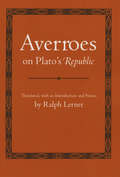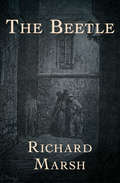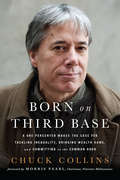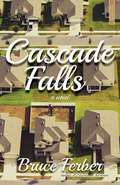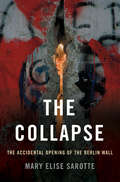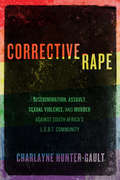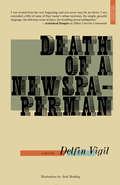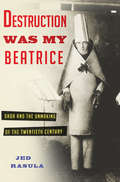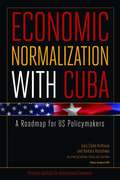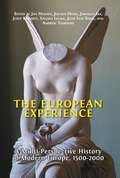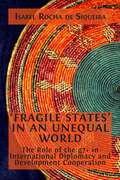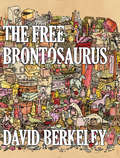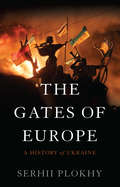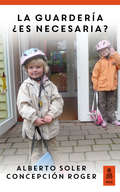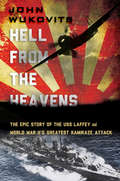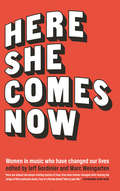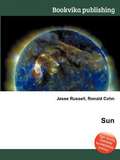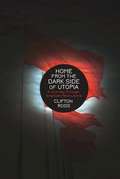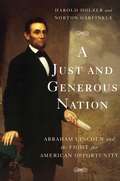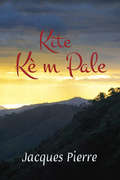- Table View
- List View
Averroes on Plato's "Republic"
by Averroes Ralph Lerner"In one fashion or another, the question with which this introduction begins is a question for every serious reader of Plato's Republic: Of what use is this philosophy to me? Averroes clearly finds that the Republic speaks to his own time and to his own situation. . . . Perhaps the greatest use he makes of the Republic is to understand better the shari'a itself. . . . It is fair to say that in deciding to paraphrase the Republic, Averroes is asserting that his world--the world defined and governed by the Koran--can profit from Plato's instruction."--from Ralph Lerner's IntroductionAn indispensable primary source in medieval political philosophy is presented here in a fully annotated translation of the celebrated discussion of the Republic by the twelfth-century Andalusian Muslim philosopher, Abu'l-Walid Muhammad Ibn Ahmad Ibn Rushd, also know by his his Latinized name, Averroes. This work played a major role in both the transmission and the adaptation of the Platonic tradition in the West. In a closely argued critical introduction, Ralph Lerner addresses several of the most important problems raised by the work.
The Beetle: Large Print (The\penguin English Library)
by Richard Marsh'No room!-Full up!'He banged the door in my face. That was the final blow. To have tramped about all day looking for work; to have begged even for a job which would give me money enough to buy a little food; and to have tramped and to have begged in vain,-that was bad. But, sick at heart, depressed in mind and in body, exhausted by hunger and fatigue, to have been compelled to pocket any little pride I might have left, and solicit, as the penniless, homeless tramp which indeed I was, a night's lodging in the casual ward,- and to solicit it in vain!-that was worse. Much worse. About as bad as bad could be. I stared, stupidly, at the door which had just been banged in my face. I could scarcely believe that the thing was possible. I had hardly expected to figure as a tramp; but, supposing it conceivable that I could become a tramp, that I should be refused admission to that abode of all ignominy, the tramp's ward, was to have attained a depth of misery of which never even in nightmares I had dreamed. As I stood wondering what I should do, a man slouched towards me out of the shadow of the wall. 'Won't 'e let yer in?''He says it's full. ''Says it's full, does 'e? That's the lay at Fulham,-they always says it's full. They wants to keep the number down. 'I looked at the man askance. His head hung forward; his hands were in his trouser pockets; his clothes were rags; his tone was husky.
Born on Third Base: A One Percenter Makes the Case for Tackling Inequality, Bringing Wealth Home, and Committing to the Common
by Chuck CollinsAs inequality grabs headlines, steals the show in presidential debates, and drives deep divides between the haves and have nots in America, class war brews. On one side, the wealthy wield power and advantage, wittingly or not, to keep the system operating in their favor—all while retreating into enclaves that separate them further and further from the poor and working class. On the other side, those who find it increasingly difficult to keep up or get ahead lash out—waging a rhetorical war against the rich and letting anger and resentment, however justifiable, keep us from seeing new potential solutions. But can we suspend both class wars long enough to consider a new way forward? Is it really good for anyone that most of society’s wealth is pooling at the very top of the wealth ladder? Does anyone, including the one percent, really want to live in a society plagued by economic apartheid? It is time to think differently, says longtime inequality expert and activist Chuck Collins. Born into the one percent, Collins gave away his inheritance at 26 and spent the next three decades mobilizing against inequality. He uses his perspective from both sides of the divide to deliver a new narrative. Collins calls for a ceasefire and invites the wealthy to come back home, investing themselves and their wealth in struggling communities. And he asks the non-wealthy to build alliances with the one percent and others at the top of the wealth ladder. Stories told along the way explore the roots of advantage, show how taxpayers subsidize the wealthy, and reveal how charity, used incorrectly, can actually reinforce extreme inequality. Readers meet pioneers who are crossing the divide to work together in new ways, including residents in the author’s own Boston-area neighborhood who have launched some of the most interesting community transition efforts in the nation. In the end, Collins’s national and local solutions not only challenge inequality but also respond to climate change and offer an unexpected, fresh take on one of our most intransigent problems.
Cascade Falls
by Bruce FerberCascade Falls explores the failed promise of the American Dream. Raised to believe that with hard work, anything is possible, a staggering number of Americans hate their jobs and see little chance of ever escaping the grind. In his tragicomic followup to the laugh-ridden Elevating Overman, Bruce Ferber asks the question: "How does giving up our dreams affect our relationships and our psyches?" Danny Johnson, a writer whose career never materialized, moves with his wife and children to Cascade Falls, a water-filled, golf community in the bone-dry desert outside of Phoenix. Grudgingly going to work for his father Ted, the Elmer Gantry of home development, Danny's quest for stability ultimately comes up short. His marriage begins to fray and the housing market goes bust, forcing him and those around him to examine their lives anew. Cascade Falls exposes the desperate price paid for sacrificing who we are for how and where we live.
The Collapse: The Accidental Opening of the Berlin Wall
by Mary Elise SarotteThe Berlin Wall was erected in 1961 to end all traffic between the city’s two halves: the democratic west and the communist east. The iconic symbol of a divided Europe, the Wall became a focus of western political pressure on East Germany; as Ronald Reagan’s famously said in a 1987 speech in Berlin, "Mr. Gorbachev, tear down this wall!” But as award-winning historian Mary Sarotte shows in [Title TK] , the opening of the Wall on November 9, 1989 was not, as is commonly believed, the East German government’s deliberate concession to outside influence. It was an accident. A carelessly worded memo written by mid-level bureaucrats, a bumbling press conference given by an inept member of the East German Politburo, the negligence of government leaders, the bravery of ordinary people in East and West Berlin--these combined to bring about the end of nearly forty years of oppression, fear, and enmity in divided Berlin. When the news broke, Washington and Moscow could only stand by and watch as Tom Brokaw and other journalists narrated the televised broadcast of this critical moment in the thawing of the cold war. Sarotte opens her story in the months leading up to that fateful day. Following East German dissidents, she shows how their efforts coalesced around opposition to the regime’s restrictions on foreign travel. The city of Leipzig, close to the border with Czechoslovakia, became a hothouse of activism, and protests there quickly grew into massive demonstrations. The East German Politburo hoped to limit its citizens’ knowledge of these marches, but two daring dissidents, East Berliners Aram Radomski and Siegbert Schefke, managed to evade the Stasi and film the largest of them from a church tower. They then smuggled their tape to West Germany; broadcast in both nations, the footage galvanized activists across East Germany, and precipitated the stunning developments on November 9. Facing mounting pressure from its own citizens, the East German Politburo planned to put off enacting any meaningful change to its travel policy by issuing a deceptive ruling that would appear to offer more freedom, but which in fact would allow the state to maintain strict control over its citizen’s movements. But the bureaucrats tasked with preparing the "new” regulations misunderstood their task, and instead drafted a declaration that said East Germans could freely leave the country. This declaration ended up in the hands of regime spokesman Günter Schabowski, who announced the rules at a press conference without understanding their import. Stunned reporters were soon broadcasting the news around the world. Crowds of East Germans began streaming to the Wall, prompting a showdown with border guards, who received no support or direction from East German leadership as the throngs multiplied. By 11:30, Harald Jäger, a second-tier passport control officer, had had enough and finally opened the wall to the mob gathering outside his gate. Even though East German forces successfully regained control by the morning, it was too late--for the wall, for the regime, and for Communism in Eastern Europe. Drawing on evidence from archives in multiple countries and languages, along with dozens of interviews with key actors, including Harald Jäger, [Title TK] is the definitive account of the event that brought down the East German Politburo and came to represent the final collapse of the Cold War order.
Corrective Rape
by Charlayne Hunter-GaultRape, Sexual Violence, Murder, Discrimination, Assault, LGBT, Lesbian, Gay, Bisexual, Transgender, South Africa, Africa, L.G.B.T.
Death of a Newspaperman
by Delfin VigilTheir lives were centuries apart. Their spirit was one and the same. Desmond De Leon grows up in the outskirts of 1980s San Francisco, avoiding gangs, dodging bullets and caring nothing about the petty politics of his troubled part of town. He’s far too fascinated with the bloodier and bolder history of San Francisco newspaper journalism based downtown. Once the epicenter of American journalism, it’s where the infamous newspaper tycoon Charles Sansome died with pistol in hand during an era when editorial disputes were resolved within 20 paces. As the headstrong, scrappy kid rises from San Francisco Call copy boy to reporter, he documents the deteriorating character and morals of his journalist mentors, along with the decline of the newspaper itself. Walking the same ghostly streets as his 19th-century newspaper tycoon heroes once did, and with a dash of supernatural guidance, Desi’s search to find out what Call founder Charles Sansome would do leads him from the highest avenues of society and politics to the back alleys of the Mission District in this hip, funny, romantic and ultimately tragic near roman à clef written by the one who lived it.
Destruction Was My Beatrice: Dada and the Unmaking of the Twentieth Century
by Jed RasulaIn 1916, as World War I raged around them, a group of bohemians gathered at a small nightclub in Zurich, Switzerland for a series of bizarre performances. Three readers simultaneously recited a poem in three languages; a monocle-wearing teenager performed a spell from New Zealand; another young man flung bits of papier-mâché into the air and glued them into place where they landed. One of these artists called the sessions "both buffoonery and a requiem mass. ” Soon they would be known by a more evocative name: Dada. In Destruction Was My Beatrice, modernist scholar Jed Rasula presents the first narrative history of the emergence, decline, and legacy of Dada, showing how this strange artistic phenomenon spread across Europe and then the world in the wake of the Great War, fundamentally reshaping modern culture in ways we’re still struggling to understand today.
Divine Style: Walt Whitman and the King James Bible
by F. W. Dobbs-AllsoppIn exploring the seminal works of Walt Whitman, the great American poet, many commentators have acknowledged the underlying influence of The King James Bible. However, a study has yet to elucidate the precise manner in which the Bible has shaped Whitman’s poetic style. This is the deficit that F. W. Dobbs-Allsopp seeks to address in his new piece of literary scholarship: 'Divine Style: Walt Whitman and the King James Bible'. Dobbs-Allsopp, Professor of Old Testament at Princeton Theological Seminary, explicitly approaches Whitman from the perspective of a biblical scholar. Utilising his wealth of expertise in this field, he constructs a compelling, erudite and methodical argument for the King James Bible’s importance in the evolution of Whitman’s style – from his signature long lines to the prevalence of parallelism and tendency towards parataxis in his works. 'Divine Style' focuses on Whitman’s output in the years preceding the release of his 1855 opus 'Leaves of Grass' through the general period of the book’s first three editions. In this, Dobbs-Allsopp’s exploration of the period is exhaustive – covering not just Leaves of Grass but recently recovered notebooks, newly digitised manuscripts and additions to the corpus, such as the novel 'Life and Adventures of Jack Engle'. This is a work of careful, detailed scholarship, offering an authoritative commentary that will be a valuable resource for students of Whitman, biblical scholars and scholars of literature more generally.
Economic Normalization With Cuba: A Roadmap For Us Policymakers
by Gary Clyde Hufbauer Barbara KotschwarGary Clyde Hufbauer, Reginald Jones Senior Fellow at the Peterson Institute for International Economics since 1992, was the Maurice Creenberg Chair and Director of Studies at the Council on Foreign Relations [1996-98), the Marcus Wallenberg Professor of International Finance Diplomacy at Georgetown University (1985-92), senior fellow at the Institute (1981-85), deputy director of the International Law Institute at Georgetown University 0979-81), deputy assistant secretary for international trade and investment policy of the US Treasury (1977-79), and director of the international tax staff at the Treasury (1974-76). Among his numerous coauthored books are Local Content Requirements: A Global Problem (2013), The United States Should Establish Permanent Normal Trade Relations with Russia (2012), Figuring Out the Doha Round [2010], and Economic Sanctions Reconsidered, 3rd edition (2007). Book jacket.
The European Experience
by Jan Hansen;Jochen Hung;Jaroslav Ira;Judit Klement;Sylvain Lesage;Juan Luis Simal;Andrew TompkinsThe European Experience brings together the expertise of nearly a hundred historians from eight European universities to internationalise and diversify the study of modern European history, exploring a grand sweep of time from 1500 to 2000.
‘Fragile States’ in an Unequal World
by Isabel Rocha de SiqueiraThis is a book about people. ‘Fragile States’ in an Unequal World: The Role of the g7+ in International Diplomacy and Development Cooperation introduces the members of the g7+, a group formed by 20 conflict-affected states: why they came to believe in politics and policy; how they feel about their work, their family and their communities; and what they want to leave behind for the next generations It is the story of their personal and collective values, their mistakes, and the challenges they faced, and it will resonate with anyone who has tried to organize and work with a group of very different people.
FreeBrontosaurus
by David BerkeleyThe Free Brontosaurus is a novella comprising ten interweaving stories, complete with an accompanying album of ten songs. All set in the same fictional city, at the same moment in time, minor characters in one story are major characters in another. It is a bit like Olive Kitteridge, if reimagined by Miranda July. These are gently written narratives of isolation, describing characters disconnected from home and community. The book is full of dark humor, sadness and glimmers of joy. Ultimately, the characters’ abilities to find beauty in the bizarre connect and redeem them, offering the characters (and us) hope. The book is only half of this project, though, for it also comes with a soundtrack, one song per story, written loosely from the perspective of the main character from each tale. Both the book and the album can stand alone. However, when the two are appreciated together, an unusually moving and multi-layered world is born, likely to break and heal the heart.
The Gates of Europe
by PlokhyUkraine is currently embroiled in a tense battle with Russia to preserve its economic and political independence. But today’s conflict is only the latest in a long history of battles over Ukraine’s existence as a sovereign nation. As award-winning historian Serhii Plokhy argues in The Gates of Europe, we must examine Ukraine’s past in order to understand its fraught present and likely future. Situated between Europe, Russia, and the Asian East, Ukraine was shaped by the empires that have used it as a strategic gateway between East and West—from the Romans and Ottomans to the Third Reich and the Soviet Union, all have engaged in global fights for supremacy on Ukrainian soil. Each invading army left a lasting mark on the landscape and on the population, making modern Ukraine an amalgam of competing cultures. Authoritative and vividly written, The Gates of Europe will be the definitive history of Ukraine for years to come.
The Gates of Europe
by PlokhyUkraine is currently embroiled in a tense battle with Russia to preserve its economic and political independence. But today’s conflict is only the latest in a long history of battles over Ukraine’s existence as a sovereign nation. As award-winning historian Serhii Plokhy argues in The Gates of Europe, we must examine Ukraine’s past in order to understand its fraught present and likely future. Situated between Europe, Russia, and the Asian East, Ukraine was shaped by the empires that have used it as a strategic gateway between East and West—from the Romans and Ottomans to the Third Reich and the Soviet Union, all have engaged in global fights for supremacy on Ukrainian soil. Each invading army left a lasting mark on the landscape and on the population, making modern Ukraine an amalgam of competing cultures. Authoritative and vividly written, The Gates of Europe will be the definitive history of Ukraine for years to come.
Genetic Inroads into the Art of James Joyce
by Hans Walter GablerThis book is a treasure trove comprising core writings from Hans Walter Gabler‘s seminal work on James Joyce, spanning fifty years from the analysis of composition he undertook towards a critical text of A Portrait of the Artist as a Young Man, through the Critical and Synoptic Edition of Ulysses, to Gabler‘s latest essays on (appropriately enough) Joyce’s sustained artistic innovation. Not only does this span of essays trace the evolution of Gabler’s thinking about Joyce’s originality and creative energy. It also reflects the development and maturation of Gabler‘s own genetic criticism and his methodology of genetic editing, which grows in depth and complexity across the collection. The reader will explore Joyce’s life and works through Gabler’s incisive eye, while also examining a progress of his reflections on his edition of Ulysses and the past controversy that beset it. This classic compendium combining well-seasoned scholarship and fresh criticism is an essential read for critics of Modernism, digital humanists, scholars and students of James Joyce, and anyone interested in the art of literary analysis.
La guardería, ¿es necesaria?
by Alberto Soler y Concepción Roger¿Cómo conciliar? ¿Necesito una guardería? ¿A qué edad debo escolarizar a mi hijo? En este texto breve, didáctico y riguroso, Alberto Soler responde a estas y otras preguntas y explica cómo es la adaptación a estos centros y que pautas debemos tener en cuenta. Para profundizar en temas relacionados con la crianza, recomendamos el ebook <i>Hijos y padres felices</i>, de Alberto Soler y Concepción Roger, que incluye “La guardería, ¿es necesaria?”, además de capítulos dedicados a la alimentación, el sueño, la operación pañal, las pantallas y los estilos parentales, entre otros.
Hell From the Heavens: The Epic Story of the USS Laffey and World War II's Greatest Kamikaze Attack
by WukovitsOn the morning of April 16, 1945, the crewmen of the USS Laffey saw what seemed to be the entire Japanese air force assembled directly above. They were about to become the targets of the largest single-ship kamikaze attack of World War II. By the time the unprecedented assault was finished, thirty-two sailors were dead and more than seventy wounded. Although she lay shrouded in smoke and fire for hours, the Laffey somehow survived. The gutted American warship limped from Okinawa’s shore for home, where the ship and crew would be feted as heroes. Using personal interviews with survivors, the memoirs of crew members, and their wartime correspondence, John Wukovits breathes life into the story of this forgotten historic event.
Here She Comes Now
by edited by Jeff Gordinier Marc WeingartenWhether it was Patti Smith's angry moan, Nina Simone's guttural growl, or Dolly Parton's towering hair and sweet voice, women have been a musical force to be reckoned with, inspired by, and paid attention to. In Here She Comes Now, today's biggest and brightest writers tackle their favorite female musicians and the effect they've had on their own lives. From Rosie Schaap writing about Sandy Denny to Susan Choi writing about Stevie Nicks to Elissa Schappell writing about Kim Gordon, Here She Comes Now thoughtfully and lovingly discusses the extreme badassery of the women who break through all the barriers to truly rock.
Hijos y padres felices
by Alberto Soler y Concepción RogerUna guía amena, didáctica y rigurosa que ayuda a entender el desarrollo de nuestros hijos en sus primeros años de vida y propone recomendaciones adaptables a cada familia. En la primera etapa de la vida de un niño su cuerpo y su cerebro se transforman a un ritmo vertiginoso. El pequeño pasa de ser un bebé que hace poco más que llorar y mamar, a ser un niño que nos pregunta por todo. ¿Qué es lo que necesita realmente un bebé?, ¿por qué llora en cuanto le soltamos?, ¿es malo que duerma con nosotros?, ¿hasta cuándo seguir con la lactancia?, ¿cómo actuar ante las rabietas?, ¿le dejamos el móvil para que se distraiga?, ¿cuándo necesita ir a la guardería?, ¿le castigamos cuando se porte mal?, ¿cómo establecemos límites? Este libro responde a estas y muchas otras preguntas, abarcando gran parte de lo que ocurre durante los primeros años de vida de nuestros hijos. Unos años que en el futuro recordaréis como vuestros mejores años.
Holy Quran in Arabic: Isländernes Lovbog I Fristatens Tid. Text I, Volume 1...
by تنزيلHoly Quran complete in Arabic Language
Home from the Dark Side of Utopia
by Clifton RossA riveting personal memoir that shares hard-earned political insights. Ross's journey mirrors that of the American left after World War II. From an Anabaptist hippie commune in the 1970s to the present-day failures of the Venezuelan revolution (and numerous revolutions before it), his book charts a trajectory of good intentions and poor choices, of blind faith in charismatic leaders followed by inevitable disillusionment and, ultimately, a solid belief in the ability of ordinary people to make history. . Clifton Rossdirected the filmVenezuela: Revolution from the Inside Out. He is the co-editor ofUntil the Rulers Obey: Voices from Latin American Social Movements.
A Just and Generous Nation: Abraham Lincoln and the Fight for American Opportunity
by Harold Holzer Norton GarfinkleIn A Just and Generous Nation, the eminent historian Harold Holzer and the noted economist Norton Garfinkle present a groundbreaking new account of the beliefs that inspired our sixteenth president to go to war when the Southern states seceded from the Union. Rather than a commitment to eradicating slavery or a defense of the Union, they argue, Lincoln’s guiding principle was the defense of equal economic opportunity. Lincoln firmly believed that the government’s primary role was to ensure that all Americans had the opportunity to better their station in life. As president, he worked tirelessly to enshrine this ideal within the federal government. He funded railroads and canals, supported education, and, most importantly, issued the Emancipation Proclamation, which opened the door for former slaves to join white Americans in striving for self-improvement. In our own age of unprecedented inequality, A Just and Generous Nation reestablishes Lincoln’s legacy as the protector not just of personal freedom but of the American dream itself.
Kite Kè m Pale
by Jacques PierreIn his latest collection of poetry, Kite Kè m pale (Let My Heart Speak), Jacques speaks lovingly and eloquently about those, including women, who have faced and continue to face difficulties and injustice. His poetry sometimes resorts to uncommon forms of Kreyòl such as jagon and bolit to better expressed that which cannot conveyed commonly, and expose everyone to the linguistic wealth of the country.
